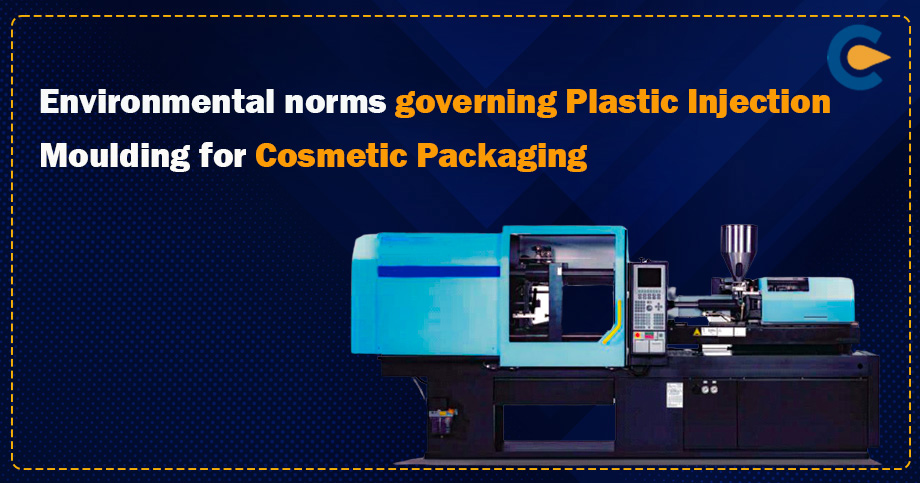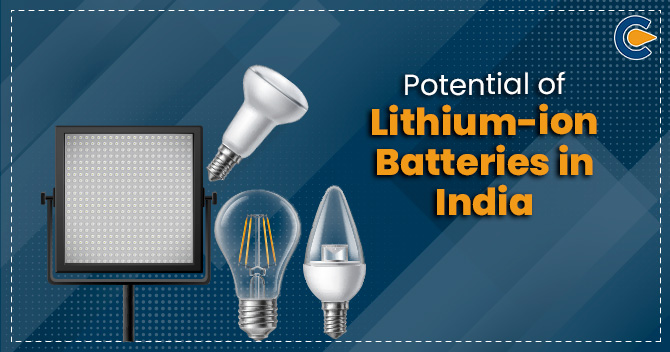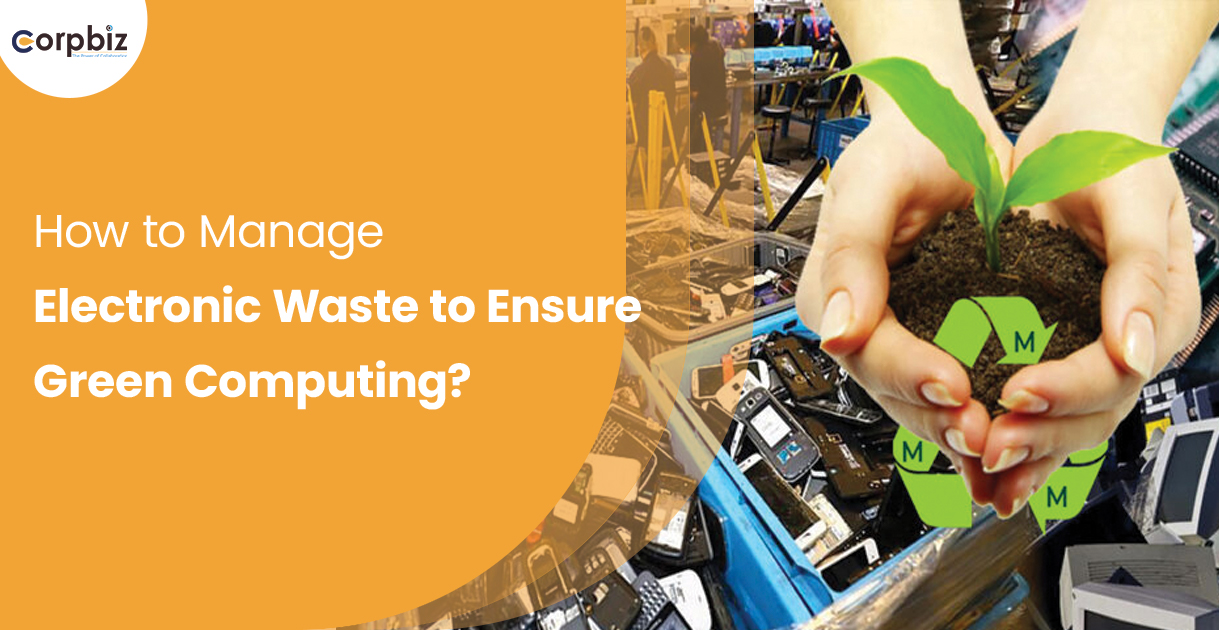Injection Moulding is the production method that includes the process of injecting molten materials into the mould that is used for making products produced in large quantities. The cosmetic packaging includes cosmetic jars, Roll-on bottles and tubes, Powder Compact, lipstick tubes, Pump Bottles and Squeeze tubes. It is estimated that Cosmetic Industry is worth 500 billion dollars, with the estimation to grow to 820 billion dollars by 2023. With this much sale of cosmetic products, the environmental damage caused due to cosmetic packaging is also increasing on a daily basis. Therefore to regulate and monitor pollution, the CPCB and the Ministry of Environment, Forest and Climate Change have made it mandatory for the producers of Cosmetic Packaging to acquire an EPR certificate.
This blog will elaborate on Environmental norms governing Plastic Injection Moulding for Cosmetic Packaging.
Market Overview Plastic Injection Moulding for Cosmetic Packaging
The market for Plastic Injection Moulding for Cosmetic Packaging has seen a consistent increase in the acceptance of automatic production processes and cosmetic goods. The injection moulded plastics global market value reached 284.7 billion in 2021 with the estimation of expanding at CAGR (Compound Annual Growth Rate)[1] at 4.2 per cent during 202-2030. Further, According to a market analysis report, the Plastic Injection moulding machine business is worth 0.73 bil. Dollars in 2021 and is estimated to increase at the CAGR (Compound Annual Growth Rate) of 6.1 per cent from 2022 to 2030. Plastic Injection moulding for the cosmetic packaging market is set to witness a CAGR of 4.0% during 2021-2031.
Authorisation needed to setup Business of Plastic Injection Molding for Cosmetic Packaging
For setting up a business for Plastic Injection Moulding for Cosmetic Packaging, the manufacturer is required to obtain different types of licenses and authorisations, which are segregated into two categories. These are: –
General Business Setup Licenses
Before acquiring and compiling environmental authorisation, the Plastic Injection Moulding for Cosmetic Packaging business has to acquire general licenses and authorisation from the concerned Central or state governmental authorities. Some of these licenses/authorisations are: –
- Company license
Documents required for establishing the company for Plastic Injection Moulding for Cosmetic Packaging
- PAN Card
- Address Proof such as
- Passport;
- Election Card or Voter Identity Card;
- Ration Card;
- Driving License;
- Electricity Bill;
- Telephone Bill;
- Aadhaar Card;
- Residential, Proof such as
- Bank Statement
- Electricity Bill
- Telephone Bill
- Mobile Bill
- GST Registration Certificate;
- MOA (Memorandum of Association);
- AOA (Article of Association);
- Factory license for Operating Plastic Injection Moulding for Cosmetic Packaging
For establishing their manufacturing units, owners have to register their business under Factories Act. Under this, they are mandated to get a Factory license, which the Chief Inspector approve of the Labour Commissioner Organisation after examining the operation site as mandated under the Factories Act, 1948.
Documents need for Setting up Business of Plastic Injection Moulding for Cosmetic Packaging
For the Factory license, the documents that are required are: –
- Form 1;
- Layout plan/site plan;
- Aadhar Card;
- List of directors;
- MOA;
- AOA;
- Partnership deed;
- Account Details;
- Commencement date;
- Payment receipt;
- Land deeds;
- Consent form from SPCB/PCC
- Details of Hazardous and Non-Hazardous waste
- Tax receipt
- Udyog Aadhaar MSME Registration
Documents needed for MSME registration
To acquire MSME (Micro, Small and Medium Enterprise) registration, one must apply through the authority’s online portal and upload the mandated documents.
- ApplicantOfficial Name
- Name and type of enterprise
- Aadhar Card
- PAN Number
- The NIC Code
- Account Details
- The social category of the applicant
- The business operations of the enterprise
- Date of Incorporation of a business
- Details related to employment
- GST Certificate
Document required for GST Certificate for Plastic Injection Moulding for Cosmetic Packaging Business
- PAN Card
- the Ministry of Corporate Affairs authorised Incorporation Certificate
- MOA
- AOA
- Aadhar Card of the applicant
- Address proof
- Bank Details
Environmental Compliances
Along with acquiring the general licenses and authorisation, Manufacturers of Cosmetic Packaging manufacturers also have to apply for Environmental compliances that are governed by the Central Pollution Control Board and the Ministry of Environment, Forest and Climate Change.
- EPR Authorisation needed for Plastic Injection Moulding for Cosmetic Packaging Business
EPR Authorisation for Plastic Injection Moulding for Cosmetic Packaging Business is governed under Plastic Waste Management Rules, 2016. Manufacturers working on this have to file an authorisation application under Form I through the online portal of the Pollution Control Committee of UT/The State Pollution Control Board, which is uploaded/submitted with the mandated documents. Further, when the application is submitted, it is reviewed and scrutinised by authorities, following which the Plastic Injection Moulding for Cosmetic Packaging Business provides the authorisation.
Documents required for acquiring EPR Authorisation for Plastic Injection Moulding for Cosmetic Packaging Business
- EPR plan;
- Financial breakup for EPR;
- Self-declaration under RoHS;
- Copy of authorisation issued by Pollution Control Committee/State Pollution Control Board earlier in case October of those manufacturers who were working in the country before 01 2016;
- Information on future awareness programmes and associated initiatives;
- Copy of the approval from the applicable state governmental authority for marketing several produce or for doing the business as given below:
- TIN information;
- PAN information;
- Incorporation certificate;
- Copy of IEC;
- TIN information;
- Copies of agreement documents with other Stakeholders like dealers, collection centres, dismantlers, Manufacturers, treatment, storage and disposal facilities (TSDFs) etc.
- Consent Certificates for Plastic Injection Moulding for Cosmetic Packaging Business
- Consent to Establish (CTE) under the Air & Water (Prevention & Control of Pollution)Act
- Consent to Operate (CTO) under the Air & Water (Prevention & Control of Pollution) Act
The process of both the consent certificate for Plastic Injection Moulding for Cosmetic Packaging Business is instructed under the Air & Water Act, has a similar registration procedure of filing the application through an online portal of the Pollution Control Committee or The State Pollution Control Board with prescribed documents which are followed by a review of an application. After that, a site inspection by the government-authorised personnel takes place who make the report according to the inspection, and at last, the certificate is granted.
Documents required for consent certificate for Plastic Injection Moulding for Cosmetic Packaging Business
- SSI Certificate;
- Industry Department Certificate;
- The layout plan/Site plan;
- Details on channelisation;
- Total open land
- Total constructed area
- The project report
- Water usage breakdown
- DG Specifications
- Raw material list with daily MTD/monthly quantity
- Effluent / Sewage Treatment Plant Flow Diagram
- Boiler type, fuel used, and quantity
- Specifics on air pollution controls
- Product/by-product list with daily MTD/monthly quantity
- Permission from the state’s groundwater authority.
- Factory/Trade License
- Authorisation Letter
- Pan Card
- The Aadhar Card
- Municipality or Industry license
- Registration Proof of unit
- Site Plan
- Water Bill
Process used Plastic Injection Moulding for Cosmetic Packaging
The process of Plastic Injection Moulding for Cosmetic Packaging firstly involves creating moulds mainly made from metal like aluminium or steel to make the actual cosmetic packaging. After the mould is created by the mould maker, the plastic pallets are melted in the barrel, which is mixed by using a helical-shaped screw. After the plastic is melted, it is then injected into the provided mould cavity for cooling and hardening in the shape of the mould.
Once the material is solidified, the mould is mounted on a plat mould which is then opened for injection of an ejector pin to eject the plastic part from the mould.
Cosmetic Companies depends heavily on the Plastic Injection Moulding business for the production of cosmetic packing in large quantity.
Conclusion
Plastic Injection Moulding for Cosmetic Packaging Business has a lot of potential in the market for growth, especially with the increase in the demand for cosmetic products, but along with focusing on economic growth, one has to keep in mind the environmental situation and adhere to the compliances so as to reap the benefits gained from the authorisations and fulfil their responsibility towards the sustainable living.
Read our Article:Legal Regulations for Setting up Plastic Injection Moulding Business











